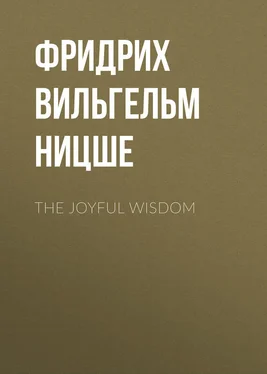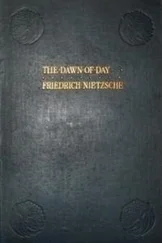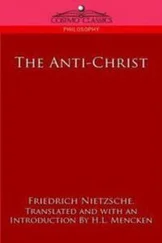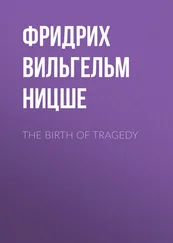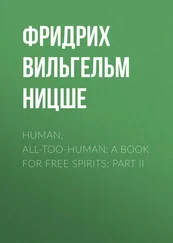Фридрих Ницше - The Joyful Wisdom
Здесь есть возможность читать онлайн «Фридрих Ницше - The Joyful Wisdom» — ознакомительный отрывок электронной книги совершенно бесплатно, а после прочтения отрывка купить полную версию. В некоторых случаях можно слушать аудио, скачать через торрент в формате fb2 и присутствует краткое содержание. Жанр: Философия, literature_19, foreign_antique, foreign_prose, на английском языке. Описание произведения, (предисловие) а так же отзывы посетителей доступны на портале библиотеки ЛибКат.
- Название:The Joyful Wisdom
- Автор:
- Жанр:
- Год:неизвестен
- ISBN:нет данных
- Рейтинг книги:3 / 5. Голосов: 1
-
Избранное:Добавить в избранное
- Отзывы:
-
Ваша оценка:
- 60
- 1
- 2
- 3
- 4
- 5
The Joyful Wisdom: краткое содержание, описание и аннотация
Предлагаем к чтению аннотацию, описание, краткое содержание или предисловие (зависит от того, что написал сам автор книги «The Joyful Wisdom»). Если вы не нашли необходимую информацию о книге — напишите в комментариях, мы постараемся отыскать её.
The Joyful Wisdom — читать онлайн ознакомительный отрывок
Ниже представлен текст книги, разбитый по страницам. Система сохранения места последней прочитанной страницы, позволяет с удобством читать онлайн бесплатно книгу «The Joyful Wisdom», без необходимости каждый раз заново искать на чём Вы остановились. Поставьте закладку, и сможете в любой момент перейти на страницу, на которой закончили чтение.
Интервал:
Закладка:
Unconditional Duties. – All men who feel that they need the strongest words and intonations, the most eloquent gestures and attitudes, in order to operate at all – revolutionary politicians, socialists, preachers of repentance with or without Christianity, with all of whom there must be no mere half-success, – all these speak of "duties," and indeed, always of duties, which have the character of being unconditional – without such they would have no right to their excessive pathos: they know that right well! They grasp, therefore, at philosophies of morality which preach some kind of categorical imperative, or they assimilate a good lump of religion, as, for example, Mazzini did. Because they want to be trusted unconditionally, it is first of all necessary for them to trust themselves unconditionally, on the basis of some ultimate, undebatable command, sublime in itself, as the ministers and instruments of which, they would fain feel and announce themselves. Here we have the most natural, and for the most part, very influential opponents of moral enlightenment and scepticism: but they are rare. On the other hand, there is always a very numerous class of those opponents wherever interest teaches subjection, while repute and honour seem to forbid it. He who feels himself dishonoured at the thought of being the instrument of a prince, or of a party and sect, or even of wealthy power (for example, as the descendant of a proud, ancient family), but wishes just to be this instrument, or must be so before himself and before the public – such a person has need of pathetic principles which can at all times be appealed to: – principles of an unconditional ought, to which a person can subject himself without shame, and can show himself subjected. All more refined servility holds fast to the categorical imperative, and is the mortal enemy of those who want to take away the unconditional character of duty: propriety demands this from them, and not only propriety.
Loss of Dignity. — Meditation has lost all its dignity of form; the ceremonial and solemn bearing of the meditative person have been made a mockery, and one would no longer endure a wise man of the old style. We think too hastily and on the way and while walking and in the midst of business of all kinds, even when we think on the most serious matters; we require little preparation, even little quiet: – it is as if each of us carried about an unceasingly revolving machine in his head, which still works, even under the most unfavourable circumstances. Formerly it was perceived in a person that on some occasion he wanted to think – it was perhaps the exception! – that he now wanted to become wiser and collected his mind on a thought: he put on a long face for it, as for a prayer, and arrested his step-nay, stood still for hours on the street when the thought "came" – on one or on two legs. It was thus "worthy of the affair"!
Something for the Laborious. — He who at present wants to make moral questions a subject of study has an immense field of labour before him. All kinds of passions must be thought about singly, and followed singly throughout periods, peoples, great and insignificant individuals; all their rationality, all their valuations and elucidations of things, ought to come to light! Hitherto all that has given colour to existence has lacked a history: where would one find a history of love, of avance, of envy, of conscience, of piety, of cruelty? Even a comparative history of law, as also of punishment, has hitherto been completely lacking. Have the different divisions of the day, the consequences of a regular appointment of the times for labour, feast, and repose, ever been made the object of investigation? Do we know the moral effects of the alimentary substances? Is there a philosophy of nutrition? (The ever-recurring outcry for and against vegetarianism proves that as yet there is no such philosophy!) Have the experiences with regard to communal living, for example, in monasteries, been collected? Has the dialectic of marriage and friendship been set forth? The customs of the learned, of trades-people, of artists, and of mechanics – have they already found their thinkers? There is so much to think of thereon! All that up till now has been considered as the "conditions of existence," of human beings, and all reason, passion and superstition in this consideration – have they been investigated to the end? The observation alone of the different degrees of development which the human impulses have attained, and could yet attain, according to the different moral climates, would furnish too much work for the most laborious; whole generations, and regular co-operating generations of the learned, would be needed in order to exhaust the points of view and the material here furnished. The same is true of the determining of the reasons for the differences of the moral climates (" on what account does this sun of a fundamental moral judgment and standard of highest value shine here – and that sun there?"). And there is again a new labour which points out the erroneousness of all these reasons, and determines the entire essence of the moral judgments hitherto made. Supposing all these labours to be accomplished, the most critical of all questions would then come into the foreground: whether science is in a position to furnish goals for human action, after it has proved that it can take them away and annihilate them – and then would be the time for a process of experimenting, in which every kind of heroism could satisfy itself, an experimenting for centuries, which would put into the shade all the great labours and sacrifices of previous history. Science has not hitherto built its Cyclopic structures; for that also the time will come.
Unconscious Virtues. — All qualities in a man of which he is conscious – and especially when he presumes that they are visible and evident to his environment also – are subject to quite other laws of development than those qualities which are unknown to him, or imperfectly known, which by their subtlety can also conceal themselves from the subtlest observer, and hide as it were behind nothing – as in the case of the delicate sculptures on the scales of reptiles (it would be an error to suppose them an adornment or a defence – for one sees them only with the microscope; consequently, with an eye artificially strengthened to an extent of vision which similar animals, to which they might perhaps have meant adornment or defence, do not possess!). Our visible moral qualities, and especially our moral qualities believed to be visible, follow their own course, – and our invisible qualities of similar name, which in relation to others neither serve for adornment nor defence, also follow their own course: quite a different course probably, and with lines and refinements, and sculptures, which might perhaps give pleasure to a God with a divine microscope. We have, for example, our diligence, our ambition, our acuteness: all the world knows about them, – and besides, we have probably once more our diligence, our ambition, our acuteness; but for these – our reptile scales – the microscope has not yet been invented! – And here the adherents of instinctive morality will say, "Bravo! He at least regards unconscious virtues as possible – that suffices us!" – Oh, ye unexacting creatures!
Our Eruptions. – Numberless things which humanity acquired in its earlier stages, but so weakly and embryonically that it could not be noticed that they were acquired, are thrust suddenly into light long afterwards, perhaps after the lapse of centuries: they have in the interval become strong and mature. In some ages this or that talent, this or that virtue seems to be entirely lacking, as it – is in some men; but let us wait only for the grandchildren and grandchildren's children, if we have time to wait, – they bring the interior of their grandfathers into the sun, that interior of which the grandfathers themselves were unconscious. The son, indeed, is often the betrayer of his father; the latter understands himself better since he has got his son. We have all hidden gardens and plantations in us; and by another simile, we are all growing volcanoes, which will have their hours of eruption: – how near or how distant this is, nobody of course knows, not even the good God.
Читать дальшеИнтервал:
Закладка:
Похожие книги на «The Joyful Wisdom»
Представляем Вашему вниманию похожие книги на «The Joyful Wisdom» списком для выбора. Мы отобрали схожую по названию и смыслу литературу в надежде предоставить читателям больше вариантов отыскать новые, интересные, ещё непрочитанные произведения.
Обсуждение, отзывы о книге «The Joyful Wisdom» и просто собственные мнения читателей. Оставьте ваши комментарии, напишите, что Вы думаете о произведении, его смысле или главных героях. Укажите что конкретно понравилось, а что нет, и почему Вы так считаете.
